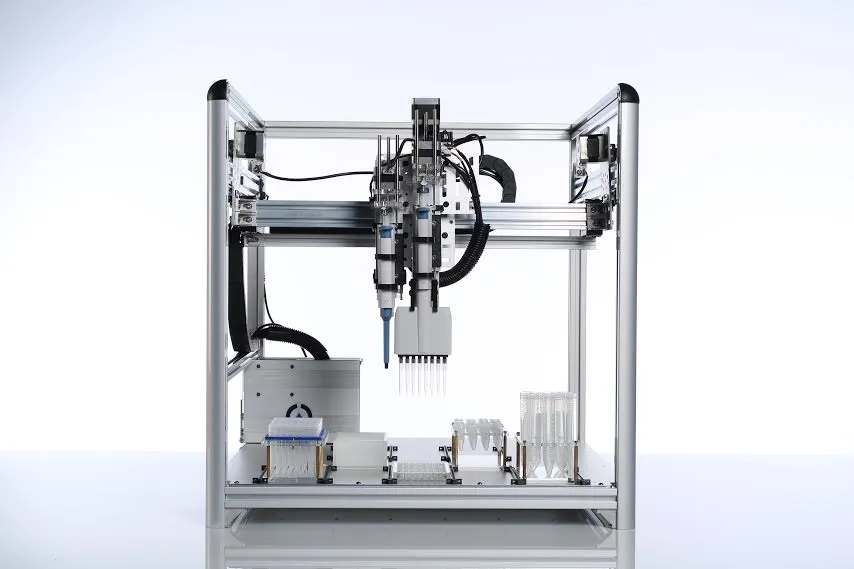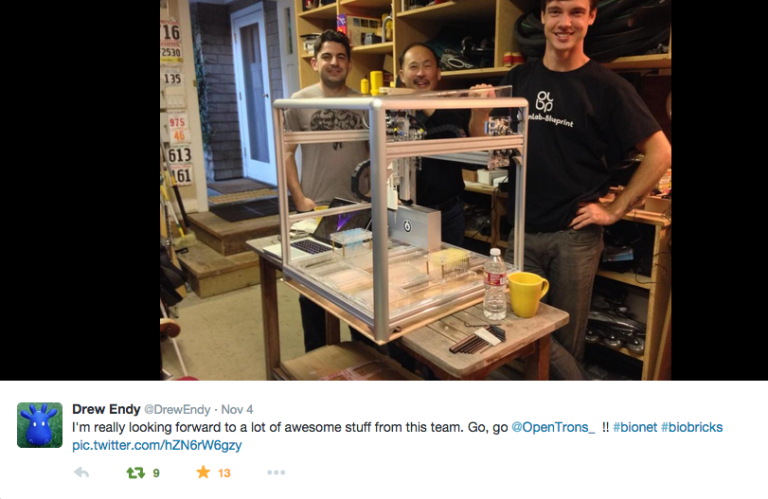-
article · 2026Year57Moon4Day
Opentrons Flex vs 其他自动化 NGS 工作站对比评测
Read More -
article · 2026Year52Moon4Day
如何通过 Opentrons Protocol Library 运行 NGS 流程?
Read More -
article · 2026Year28Moon3Day
Opentrons Flex 的节省成本优势与投资回报分析
Read More


Robotics startup OpenTrons has come up with a way it believes can make wet lab experiments faster and cheaper — automation.
Most life science research is still done manually. This can be a tedious process, and OpenTrons hopes to make it happen through the use of robots and software.
"Basically, if you're a biologist, you spend all your time manually moving small amounts of liquid from one vial to another with a little micropipette, or you have a $100,000 robot that does You do this. We're a $3,000 robot," OpenTrons co-founder Will Canine explained to TechCrunch.

Canine refers to these more expensive machines as "mainframe" machines, or computers that existed before the advent of personal computers. He believed his machine was more like a real personal computer.
These older, more expensive machines require engineers to run them on the backend, but Canine said OpenTrons is "democratizing the tools" by allowing shared protocols. In other words, his $3,000 machine is controlled by a web browser and allows researchers to download protocols from the cloud to run experiments without requiring engineers to create the code first.

Canine cited several use cases for OpenTrons, such as farmers who want to transform crops or scientists who want to develop new supermaterials in their garages. “We want to develop tools for these people in the future,” he said.
It's a similar idea to another YC startup, Transcriptic, a cloud-based biotech lab in Palo Alto that uses robots to test experimental drugs. But Canine sees the company as more of a partner than a competitor. "We are the PC, they are the cloud," he said.
“One of the biggest bottlenecks faced by labs, including outsourced labs like Transcriptic, is moving samples from the lab to their facility,” Canine said. “So, just like you deploy your lab software to Amazon Web Services, you can use OpenTrons to send samples to Transcriptic Cloud Labs.”
OpenTrons first launched Haxclr8tr in China and successfully ran it on Kickstarter in 2014, helping to build a machine that could insert DNA into E. coli. Since its launch, more than 50 OpenTrons robots have been put into operation in private labs and academic institutions, according to Canine.
The experienced service team and strong production support team provide customers with worry-free order services.

简体中文

繁體中文

English

日本語

한국인